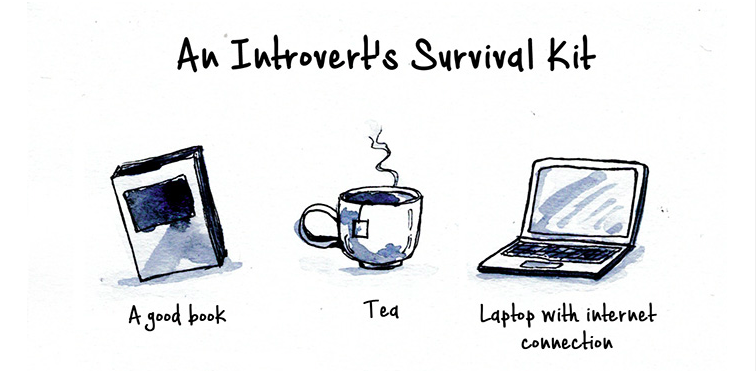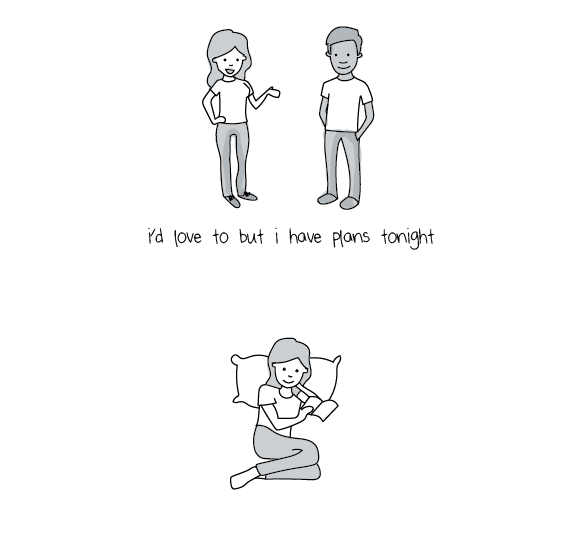Introverts Can Be Business Owners Too
As an independent business owner, I spend quite a lot of my working day on my own or working one-to-one with clients, and this is just how I like it
However, it wasn’t until I read Susan Cain’s bestseller “Quiet – The Power of Introverts in a World That Can’t Stop Talking” that I realized that I had completely engineered my working life around the fact that I am an introvert.
Now you may find this surprising. As a businesswoman and entrepreneur I am ‘supposed’ to be an extrovert, good at putting myself out there, ‘selling’ myself, and if you met me (for those of you who don’t already know me) you may have assumed that I’m in business because this is how I operate. But what “Quiet” made me realize is that while I love spending time with others, and enjoy meeting new people, I get energized by time spent on my own, by being, well, quiet, and this has informed not just my working life but life in general.
It may also surprise you because introversion has wrongly become synonymous with being quiet and shy, or even being socially awkward and really it is none of these things. So what is introversion and if you are someone who identifies as introvert, what does this mean for your business?
In this blog, I would like to re-frame the conversation around introversion to show business owners who are introverts how they can stay true to their nature and run a successful business. In doing so, I also want to offer the extrovert reader an insight in to their introvert colleagues and collaborators.
The truth about introverts
Since making the connection a few years ago that I am an introvert, what has struck me is how many times subsequently I have had this conversation with business owners who feel uncomfortable with owning their introversion. They feel it is at odds with running a business because being a business owner means that they have to be extrovert so they deny their own nature, leading them to feel guilty and uncomfortable or even worthless.
So what do we mean by being an introvert and how can we celebrate it in business? What is it in particular that introverts have to offer?
Let’s start by busting some myths about introverts and look at why we are living in an extrovert world.
If you are not an introvert and do not have an introvert in your life you may not fully understand what it means and assume they are just people who are standoffish, depressed or disinterested. Here are the most common misconceptions of what an introvert is:
“Introverts are socially awkward”: Being shy, or socially awkward is a separate trait from introversion and in fact many introverts can be extremely charismatic in social situations. What you don’t get to see is how tired they will become after these encounters and the bit where they take time out to recover, to get their ‘social energy’ back.
“Introverts are rude”: Sometimes I get ‘full up’ with social interactions and reach a point where I cannot process anything else. When introverts get like this, they often just need to zone out and reset their energy levels. So we are not being rude, we are just recharging.
“Introverts just need to be more extrovert”: Hmmm. I think one set of people telling another set to be more like them is problematic, so let’s all embrace the fact that diversity is what makes life interesting. Also, introverts are at their best when they embrace their nature and use it as a source of strength. Aren’t we all?
“Introverts don’t like people”: As I said in the introduction, I love meeting new people. However, I don’t like and have never liked small talk, which is fairly typical for an introvert. Introverts don’t like small talk because they are looking for emotional connection and they find it trivial. In fact, they really like people. They just prefer one meaningful connection at a time.
“Introverts may only have a tolerance for short periods of social activity whether that be meetings or networking events, but they will be wholehearted, intensely thoughtful and highly engaged for that period of time.”
“What it’s like in an introvert’s head” by Liz Fosslien and Mollie West
“Introverts wish they were extroverts”: I am sure at one time or another we have all wished we were someone else, but it would be wrong to say that this is a default position for an introvert. Introverts have rich inner worlds that give them great strength, something they would never trade for being extrovert.
So if being an introvert is so great, why do so many people feel uncomfortable with being this way? And why do we feel that we need to change?
A world full of extroverts
In order to answer those questions we first need to look at why in Western cultures extroversion has become our social norm.
Before the industrial revolution we lived in small communities and were judged by how we led our lives in relation to those communities, and many other cultures still live this way. But when people left their communities to seek work in cities and towns, there was a shift in how we were perceived by others. Remember, for the first time people were living with, and working for, people they had not known their whole lives, so they were now judged on how good an impression they made.
The American cultural historian Warren Susman called this the shift from the Culture of Character to the Culture of Personality.
In “Quiet” Susan Cain writes:
“When they embraced the Culture of Personality, Americans started to focus on how others perceived them. They became captivated by people who were bold and entertaining. “The social role demanded of all in the new Culture of Personality was that of a performer, Susman famously wrote. “Every American was to become a performing self.” “
This perfect storm of industrialization, capitalism and big business, urbanization and mass migration changed our world forever, and we are still reeling from the consequences not only of how we now live our lives, but also from effects of the qualities society prizes. With this as the historical backdrop it is not hard to see why introversion has often come to be viewed as something negative or even with suspicion.
The future is introvert!
But I have good news. Our world is changing. Not only are more of us choosing to set up our own enterprises and businesses, or are doing so by necessity because the jobs are not there, but many of the skills and qualities that introverts possess are going to be needed to tackle climate change, confront technological challenges, bring about a fairer political system as well as create new systems that do not currently exist.
Introverts are skilled at:
Solving complex problems and working on projects that require huge amounts of detail.
Focussing on one task at a time.
Being very good listeners.
Negotiating, because they are good at seeing other people’s point of view.
Not only are these brilliant skills for business owners and entrepreneurs, but they are also what society desperately needs right now.
Top tips for introvert business owners
When you are true to your nature and feel like you can wholeheartedly own your introversion, you can turn the narrative around and see the benefits this has to offer your business. There are no earth-shattering nuggets of wisdom here, but just a subtle shift in awareness that can make all the difference to your working day and your perception of yourself as a business owner.
Manage your energy – if you know you have a presentation coming up, or a full day with clients, be clear before you start your day about when you are going to get downtime so you don’t feel totally drained by the end.
Forget about selling yourself – We all need to get away from this idea that success is reserved for the most extroverted people because they can ‘sell’ themselves. Many successful businesses are run by introverted types (Bill Gates, Mark Zuckerberg, Steve Wozniak) not to mention famous introverts from other walks of life such as:
Eleanor Roosevelt
Meryl Streep
Mahatma Gandhi
Rosa Parks
The list is endless. So don’t worry, you are in excellent company!
Don’t make a phone call when an email will do – this comes back to managing your energy, but if you are someone who can’t say no as well as an introvert then you may feel you have to answer every call.
Don’t feel guilty – if you have had a particularly busy day and feel peopled out then don’t feel bad about re-charging in the evenings. Friends will understand if you need to say no to social events. As I always say “Those who matter don’t mind, and that those who mind don’t matter.” Those close to you, who really understand you will get that you don’t socialize as much as other people might, so get comfortable and enjoy curling up with a book.
“What it’s like in an introvert’s head” by Liz Fosslien and Mollie West
Talk about it – We cannot expect everyone to be familiar with introversion so get comfortable explaining to colleagues and collaborators that sometimes you need to take time out. In talking to other people and educating them about what introversion is and how it affects me, I have inadvertently helped other people make that connection for themselves. I have also helped extroverts think about how to help the introverts in their lives.
Be authentic. Be yourself. Take delight in your rich inner world. It has much to offer.
Apply for one of my 1:1 coaching spots, and let’s create a business that works because you feel whole enough to lead it.
P.s. If you want to learn how to price your offers in a way that feels fair, sustainable, and aligned with your values, my free mini masterclass, Fair and Fearless: Ethical Pricing Strategies for Solopreneurs Who Want to Do Good and Make Money will help you break free from undercharging so you build a thriving business that works for everyone.



